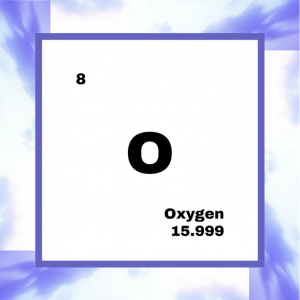It has recently been drawn to my attention that the first 20 elements of the periodic table are ripe for the picking when leaders explain why educational reform is both necessary and important.
Let me first admit that I am a product of my time.
I fondly remember my Chemistry 11 teacher, Mr. Berry, and his teaching style, which although dynamic, did include the memorization of symbols of the periodic table. Could we have looked them up if we had needed to? Yes, we could have done so even then, for paper products and rudimentary photocopies did exist in 1992. Knowledge of the identities of those symbols was the starting point for quicker process work, not the true learning in and of itself.
Let me also admit that I’ve taught that way.
 I also fondly remember my very first teaching partners, Ms. Leal, Ms. McKenna, and Mr. Monge, with whom I worked when I got my first real teaching assignment in 2007. The chemistry strand of Science 9 started with the periodic table of the elements, and included the memorization of the names and symbols of the first 20 elements. Was this a best teaching practice in 2007? Maybe not, though as a new teacher I did not feel it was a practice that was detrimental to students either. I was a newbie and I followed along for a modicum of consistency between the seven periods of students the four of us shared.
I also fondly remember my very first teaching partners, Ms. Leal, Ms. McKenna, and Mr. Monge, with whom I worked when I got my first real teaching assignment in 2007. The chemistry strand of Science 9 started with the periodic table of the elements, and included the memorization of the names and symbols of the first 20 elements. Was this a best teaching practice in 2007? Maybe not, though as a new teacher I did not feel it was a practice that was detrimental to students either. I was a newbie and I followed along for a modicum of consistency between the seven periods of students the four of us shared.
Once you know better you do better.
I have been teaching high school science classes for over ten years at the time of this writing. I have changed my teaching style a lot since I was fresh out of teachers’ college. The periodic table is still readily available in print for making copies and I ensure my Chemistry 11 and 12 students have access to a periodic table for their work and for their assessments. I direct their attention to ptable.com and help them to leverage it properly, dependent upon what information they need from it at the time.
 Be impeccable with your word (and humour).
Be impeccable with your word (and humour).
It is easy to point a finger at old school teaching practices like the memorization of the first 20 elements of the periodic table. Because the seasoned people among us remember the pain of this memorization, it is a guaranteed audience pleaser. In the information age such teaching practices seem at best quaint, and at worst, a complete waste of human hard drive space. Because the unseasoned people among us have elastic brains, are highly impressionable, and do not know what they don’t know, we must choose our words and humour carefully. If we do not, we run the risk of undermining science and scientists at our own peril.
Sensitive scientists are here to help.
I am a teacher yes, but also a scientist. The only reason I am not in a research lab at a university right now is because I felt I was too emotionally fragile to undergo the rigours of the tenure process. As a masters student on the questioning side of this process I knew I would never make it should I find myself on the receiving end of such vetting. When I hear anyone mock science my amygdala kicks into high gear. It says, “Fight or flight, fight or flight?” My first instinct is always flight, to get as far away as possible from science mockery; to distance myself from the potential for alternate facts or explanations that might be met with shrugs or disbelief.
Do you want them to?
Consider what has been happening in the ‘real world’ lately. Influential world leaders are pulling out of the Paris Agreement, flashy regional leaders are removing the carbon cap and trade system, and local leaders appreciate the natural environment whilst simultaneously contemplating the revenue to be won from enabling its calculated destruction. Young, impressionable, elastic brains need to be open to the possibility that science is their calling and that their interest in it will be welcomed, not mocked. Scientists themselves need to feel that they are a part of the community, not an amusing fringe group.
I don’t know about you, but in the face of the IPCC’s recent report I would prefer the scientists of our world to be taking public action to help us, not feeling the need to remain in their research labs while the world goes down in flames. Let us choose our words about foundational scientific knowledge more carefully. Though it might be harder to get a public laugh, it is the right thing to do. Sciencia auget vires. Knowledge does increase strength if we remember to let it.
Reference:
Ruiz, M. (1997). The four agreements: A practical guide to personal freedom. San Rafael, CA: Amber-Allen Pub.
